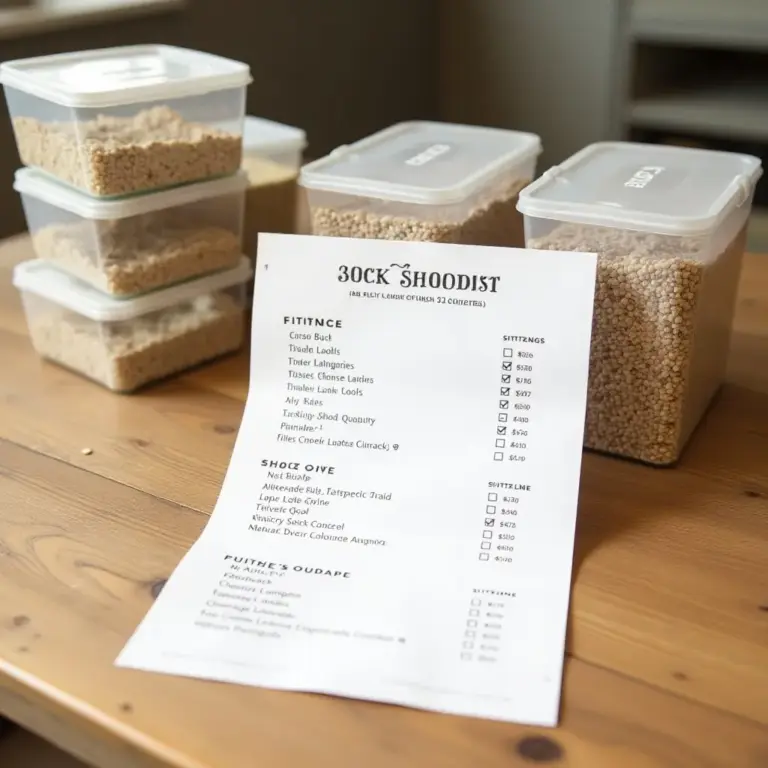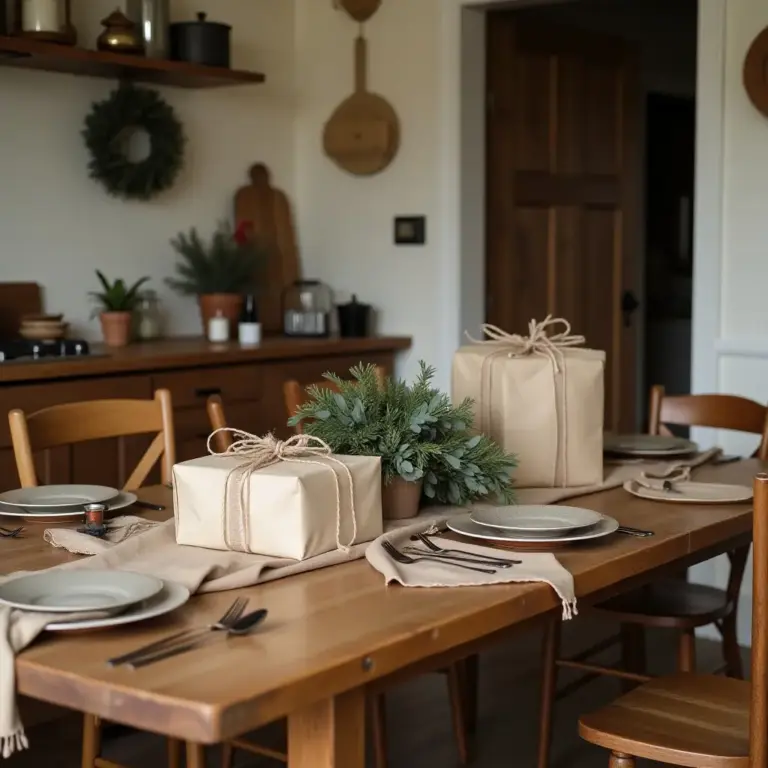Essential Insights
- Embrace Sustainability: Create a kitchen that respects nature by reducing food waste, supporting local farmers, and using reusable containers.
- Reduce Waste: Plan meals, creatively use leftovers, and compost scraps to minimize environmental impact.
- Support Local: Buy fresh, seasonal produce from nearby farms to enhance flavor and reduce carbon footprint.
- Choose Reusables: Opt for glass or metal containers to decrease plastic use and ensure safer food storage.
- Family Involvement: Engage the whole family in sustainable practices for a rewarding, educational experience.
Introduction
Welcome to the world of an eco-friendly cottagecore kitchen! Here, we embrace the charm of a simpler life while making choices that are kind to our planet. Imagine a kitchen filled with the aroma of fresh bread, where every ingredient tells a story and nothing goes to waste. By reducing food waste, buying local produce, and using reusable containers, we can create a sustainable kitchen that not only nurtures our bodies but also respects nature.
Growing up, I watched my grandmother turn kitchen scraps into rich compost for her garden. This inspired my passion for sustainable practices. Let’s explore how you can bring these delightful, earth-friendly habits into your own kitchen.
Understanding Sustainable Kitchens
Creating an eco-friendly cottagecore kitchen is about making choices that are gentle on our planet. A sustainable kitchen focuses on reducing waste, using resources wisely, and embracing the beauty of nature.
Key Practices
- Reducing Food Waste: Plan meals carefully and use leftovers creatively. Composting is a fantastic way to turn scraps into nutrient-rich soil.
- Buying Local Produce: Support local farmers and enjoy fresher, seasonal foods. This reduces the carbon footprint associated with transporting goods long distances.
- Using Reusable Containers: Swap single-use plastics for glass or metal containers. They’re better for the environment and often more durable.
By incorporating these practices, your kitchen can become a haven of sustainability and charm. For more ideas on creating a cozy and eco-friendly kitchen space, visit our Cottagecore Kitchen Decor page.
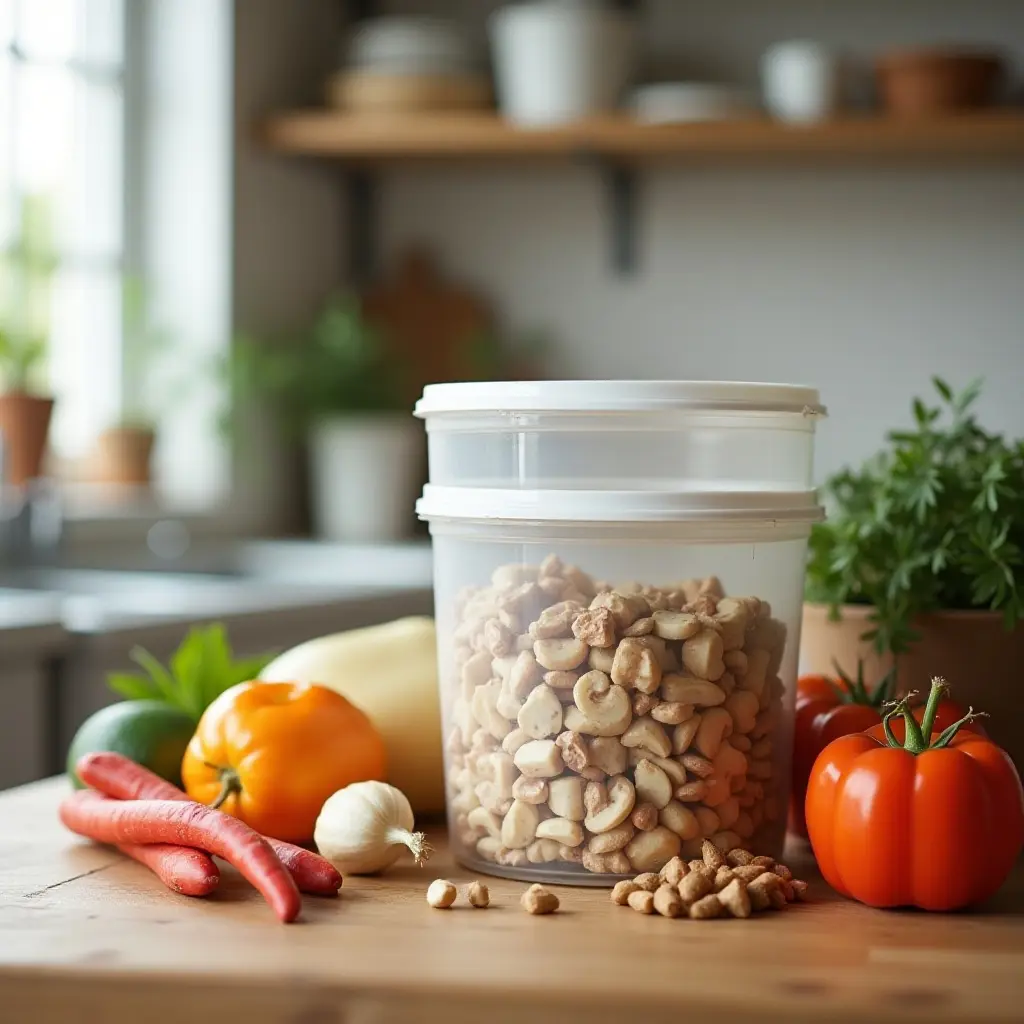
Reducing Food Waste
Reducing food waste is a key element of creating an eco-friendly cottagecore kitchen. Imagine turning leftover bread into delicious breadcrumbs or using vegetable peels to make a hearty broth. These small actions help minimize waste and can be quite fun!
Simple Tips to Reduce Waste
- Plan Your Meals: Before shopping, make a list of what you need. This avoids buying too much and helps use what you already have.
- Creative Leftovers: Transform yesterday’s dinner into today’s lunch. For example, use leftover chicken to make a tasty sandwich.
- Composting: Turn food scraps into compost for your garden. This enriches the soil and reduces trash.
Did you know that nearly one-third of all food produced is wasted? By planning meals and composting, we can help reduce this number. For more ideas on how to embrace a waste-free lifestyle, explore our Cottagecore Recycling Tips.
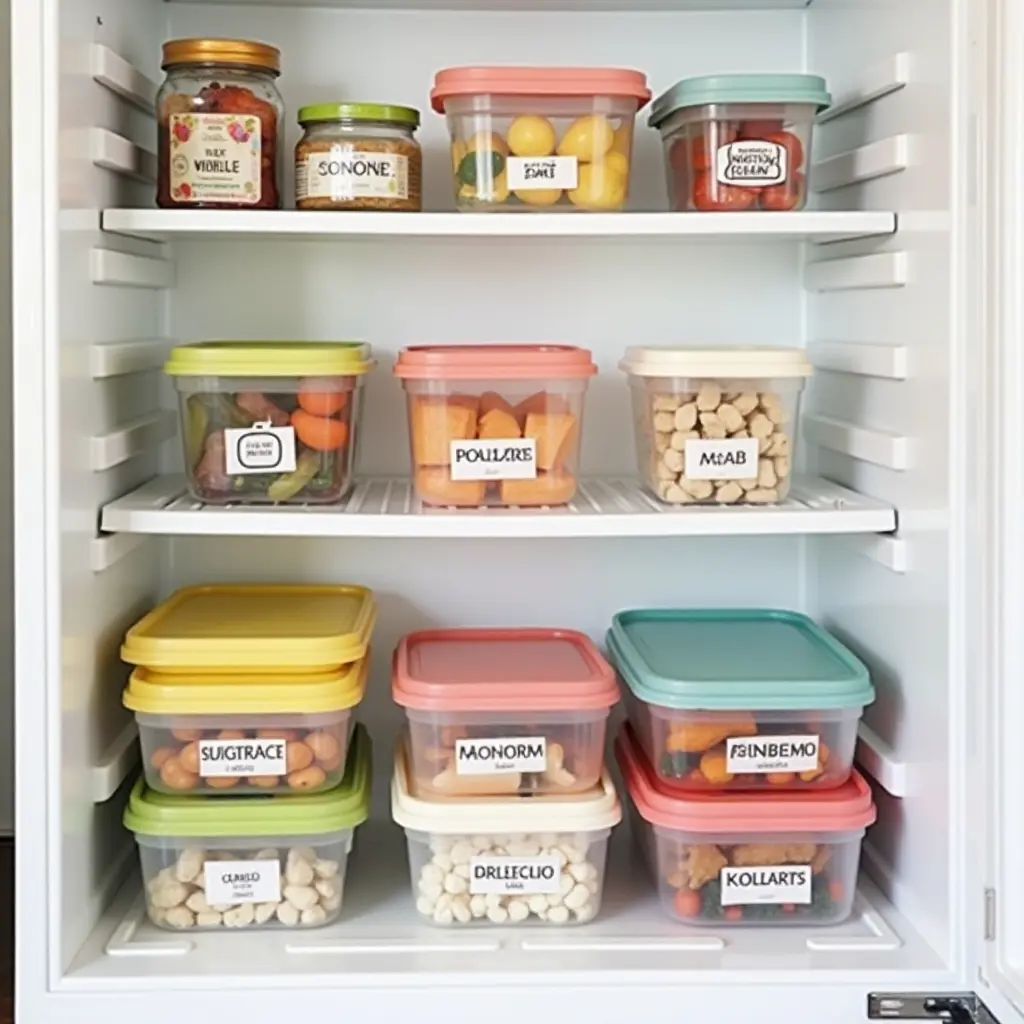
Reducing food waste not only benefits the environment but also saves money and encourages creativity in the kitchen. By making these mindful choices, your kitchen becomes a place where nothing goes to waste, and every ingredient is cherished.
Buying Local Produce
Buying local produce is a wonderful way to bring the essence of an eco-friendly cottagecore kitchen into your home. By choosing fruits and vegetables from nearby farms, you not only enjoy fresher and tastier food but also support local farmers and reduce the carbon footprint.
Benefits of Buying Local
- Fresher Taste: Local produce is often harvested at its peak ripeness, ensuring you get the most flavor and nutrients.
- Supports Local Farmers: Purchasing from local farmers helps them continue their work and supports the community.
- Eco-Friendly: Local produce travels shorter distances, which means less pollution from transportation.
One great way to start is by visiting a local farmer’s market. Here, you can find seasonal produce that aligns with the natural rhythms of the earth. For example, in autumn, you might find pumpkins and apples, perfect for homemade pies and cider. Embrace the charm of seasonal eating and try new recipes with what’s available.
If you’re interested in starting your own garden, check out our guide on starting a cottagecore garden to grow your own produce. This practice not only enhances your connection to nature but also ensures the freshest ingredients right at your doorstep.
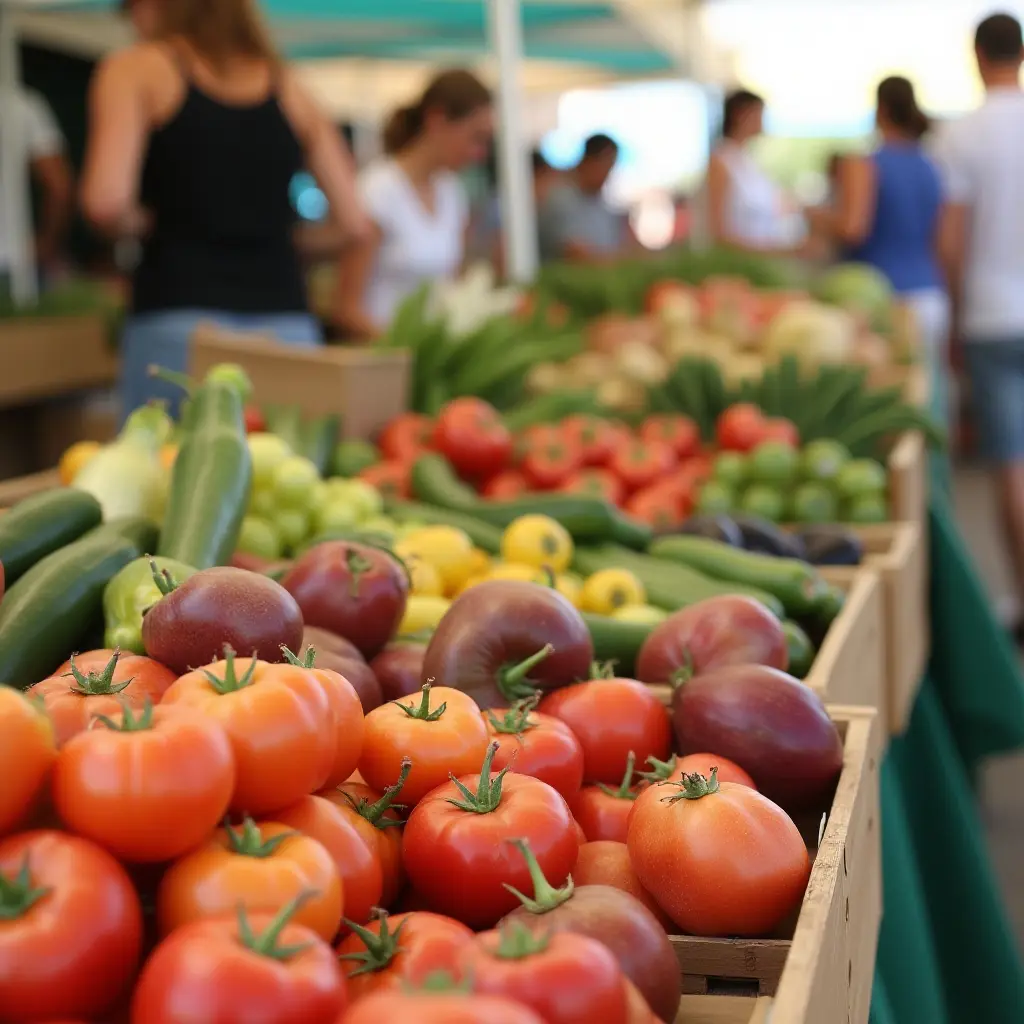
By choosing local produce, you contribute to a healthier planet and community, all while enjoying delicious and nutritious meals. Your eco-friendly cottagecore kitchen will be a place where each ingredient is celebrated and every meal is a step towards sustainability.
The Importance of Reusable Containers
Reusable containers are a cornerstone of an eco-friendly cottagecore kitchen. By swapping out single-use plastics for durable glass or metal containers, we can significantly reduce waste and create a more sustainable environment.
Why Choose Reusable Containers?
- Durability: Unlike plastic, glass and metal containers can last for years without breaking down.
- Healthier Storage: Glass doesn’t leach chemicals into food, making it a safer choice for storing your delicious meals.
- Versatility: These containers can be used for storing leftovers, packing lunches, and even freezing food.
Using reusable containers not only helps the environment but also saves money in the long run. For more tips on sustainable kitchen practices, check out our reusable storage guide.
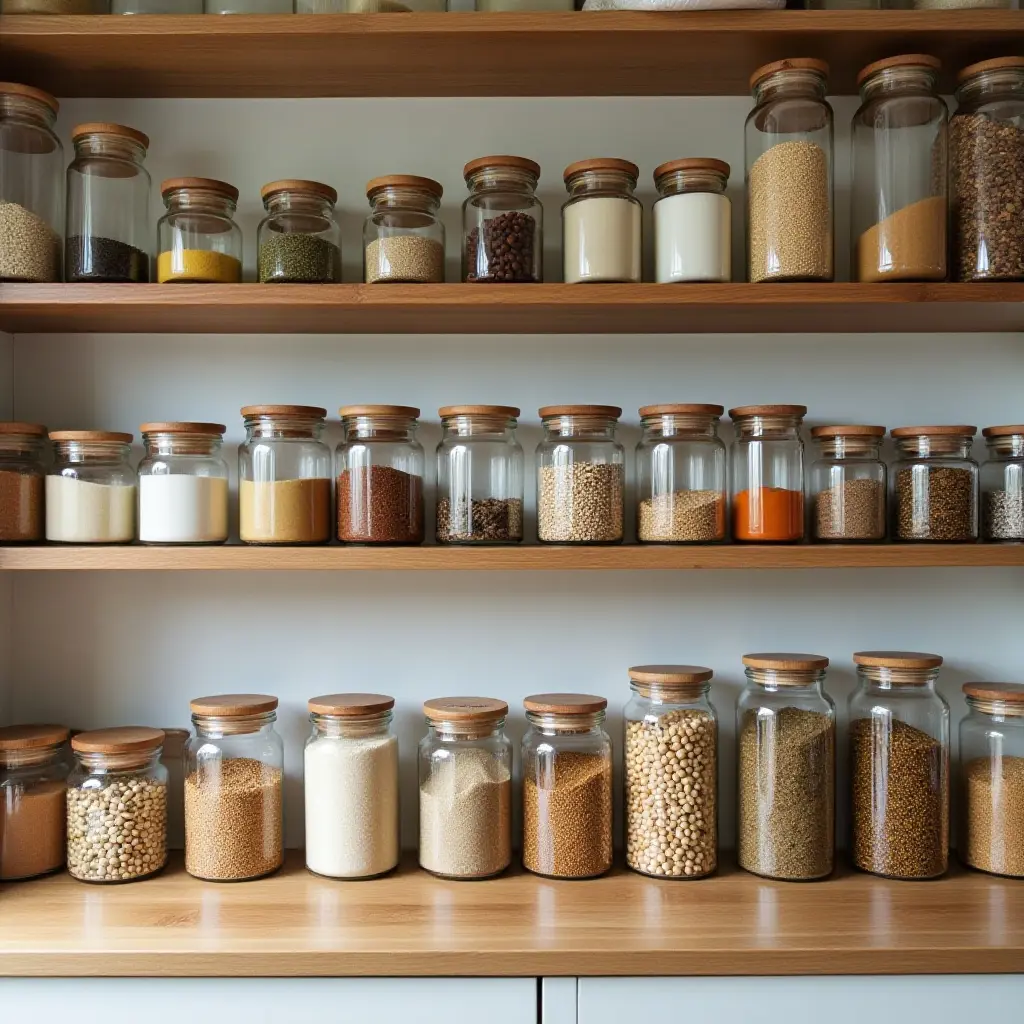
Embrace the charm of a cottagecore lifestyle by choosing reusable containers and transforming your kitchen into a haven of sustainability and nostalgia.
Family Involvement in Sustainable Practices
Family involvement in creating an eco-friendly cottagecore kitchen can be a rewarding and educational experience. When everyone pitches in, it not only makes the process more enjoyable but also helps instill sustainable habits in younger generations.
Ways to Get the Family Involved
- Meal Planning Together: Sit down as a family and plan the week’s meals. This ensures everyone has a say and helps reduce food waste.
- Visit Local Farmers’ Markets: Make it a family outing to buy local produce. It’s a fun way to learn about seasonal foods and support local farmers.
- Composting as a Team: Set up a compost bin and let everyone contribute. It’s a great way to understand how food scraps can turn into soil.
Involving the family not only lightens the load but also creates lasting memories. For more ideas on how to bring sustainable practices into your home, check out our Cottagecore Small Space Gardening guide.
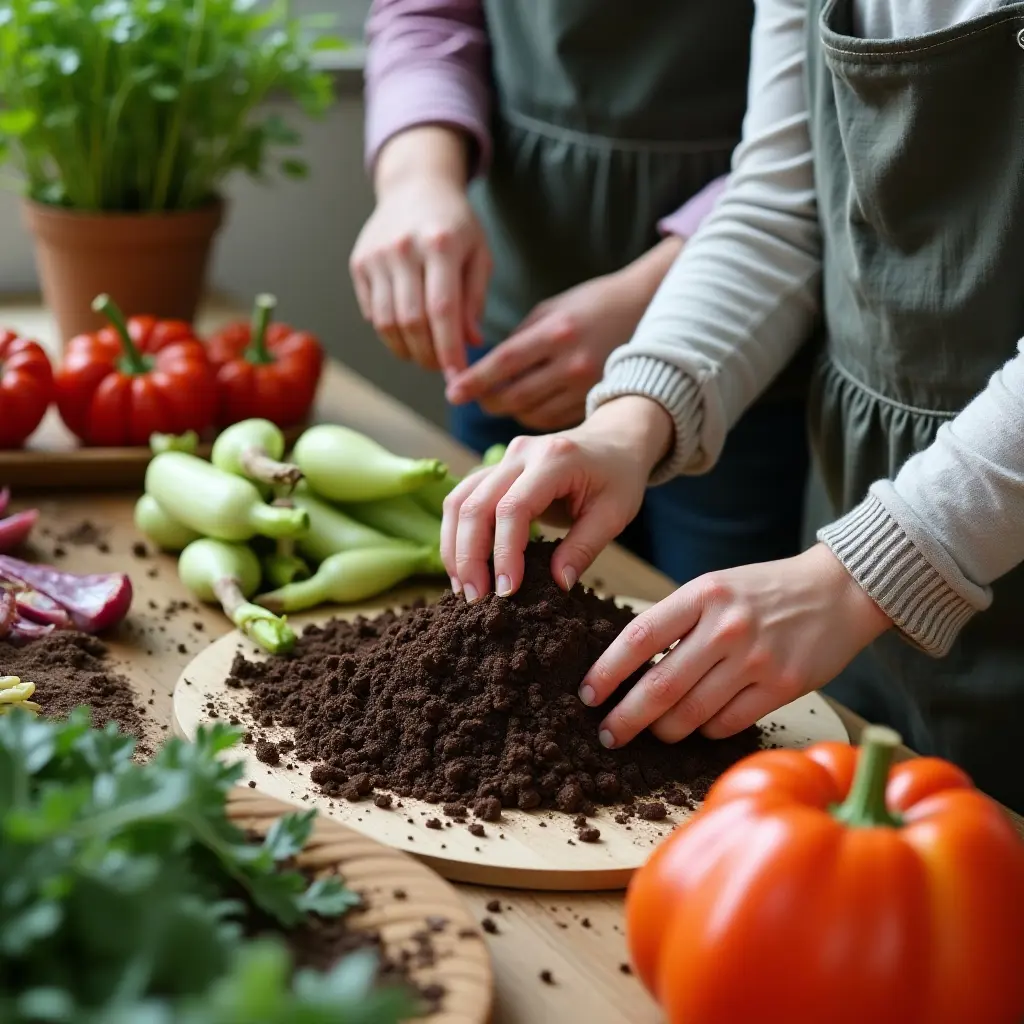
By working together, families can create a kitchen that reflects the values of sustainability and the charming simplicity of the cottagecore lifestyle.
Conclusion and Call to Action
By embracing sustainable practices in your kitchen, you can create a space that is both charming and kind to our planet. Imagine a kitchen where nothing goes to waste, where local flavors burst in every meal, and where reusable containers help reduce plastic pollution.
Start today by choosing one sustainable habit to incorporate into your routine. Perhaps plan a meal using local produce or experiment with composting. Share your journey with friends and inspire others to join you. For more ideas, explore our Reusable Kitchen Products guide. Together, we can make a difference, one meal at a time.
FAQ
- What is a cottagecore kitchen? A cottagecore kitchen blends the charm of a simpler life with eco-friendly practices, focusing on sustainability and nature.
- How can I reduce food waste? Plan meals, use leftovers creatively, and compost scraps to minimize waste.
- Why buy local produce? It supports local farmers, offers fresher taste, and reduces carbon footprint.
- What are the benefits of reusable containers? They are durable, healthier for food storage, and reduce plastic waste.
- How can families get involved? Plan meals together, visit farmers’ markets, and compost as a team for sustainable practices.



